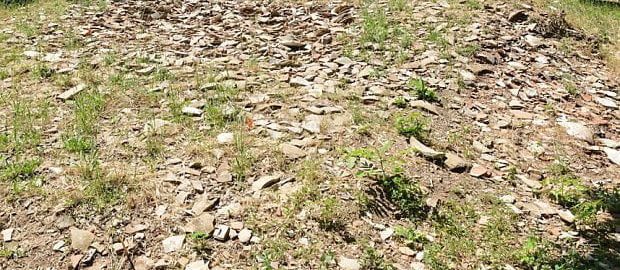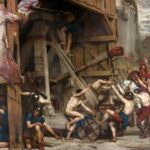Archaeologists are conducting research on Monte Testaccio, a large artificial mountain in the centre of Rome, which consists of about 25 million fragments of broken amphorae, for example from Spain or North Africa. This place hides many intriguing facts about how people traded in antiquity.
The amphorae, containing wine and olive oil, were crushed and then scattered near the port on the Tiber. The dishes could not be reused due to the fact that wine or olive oil penetrated the clay, so that subsequent products poured into the vessel would simply go rancid in the world. Each amphora had a stamp or a painting informing what was in it, how much the vessel weighed, where the goods came from, when the product was shipped and how much was the shipping duty. Sometimes the amphoras were marked with the name of the manufacturer of the amphora and of the traders delivering goods to Rome.
Scientists study thousands of amphora fragments in order to better understand the enormously extensive trading system of ancient Rome. Goods from all over the Mediterranean were brought to the “Eternal City”. The most common goods were wine and olive oil. In some amphorae, the popular drug of garum – a sauce of rotten and fermented fish added to food has been discovered.
Amphora fragments made of fired clay are known as testae. The amphora itself weighed up to 30 kg; when filled with goods, it reached a weight of over 100 kg. The process of storing the destroyed amphorae was carefully planned. Public officials – curatores – supervised the breaking of the dishes and then their transport on mule-hauled carts up the hill. The fragments were not thrown casually but were stacked carefully to reduce the risk of landslides. In addition, lime was sprinkled on the vessel fragments to reduce the smell of rancid oil.







